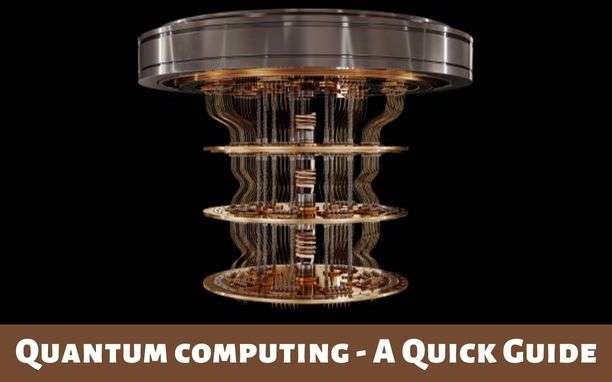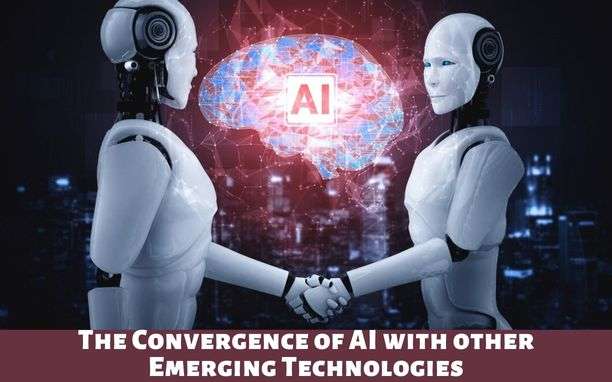In a world dominated by hard and fast rules, quantum computing is on a path to disrupting the information technology industry. It is an emerging technology, that offers the potential to improve our lives in so many ways. It allows us to perform the same tasks that would take months or years with today’s computers in days or weeks.
The idea behind quantum computers is the strange world of quantum physics. Quantum mechanics is an area of physics that describes objects that cannot be accurately predicted by classical physics. The idea behind quantum computing is the ability to control and use qubits – which are the smallest unit of information. These units can exist in multiple states at once, and when they are entangled they can share information instantly. Quantum computing is essentially using quantum properties to calculate and process numbers in a way that would be impossible with traditional computers.
Here is a quick guide to the basics of quantum computing. It explains the basic principles and why it is possible to make computers run faster using quantum technology. We can no longer afford to be constrained by the laws of physics, and quantum computers can now solve complex problems that take entire classes of classical computers months or even years to complete.
What is Quantum Computing?

Quantum computing is a field of computer science that studies the behavior of quantum mechanics. As we understand it, quantum computers can perform tasks many times faster than regular computers. This is due to the fact that while traditional computers use bits that can be either 1 or 0 (or both), quantum computers rely on qubits that can hold 1, 0, or any combination of both. This makes them capable of performing computations in parallel.
In a nutshell, quantum computing is a theoretical technology that exploits the laws of quantum mechanics to achieve super-fast calculation capabilities. So far, the only way to access this capability is through a quantum computer.
What is a Qubit?
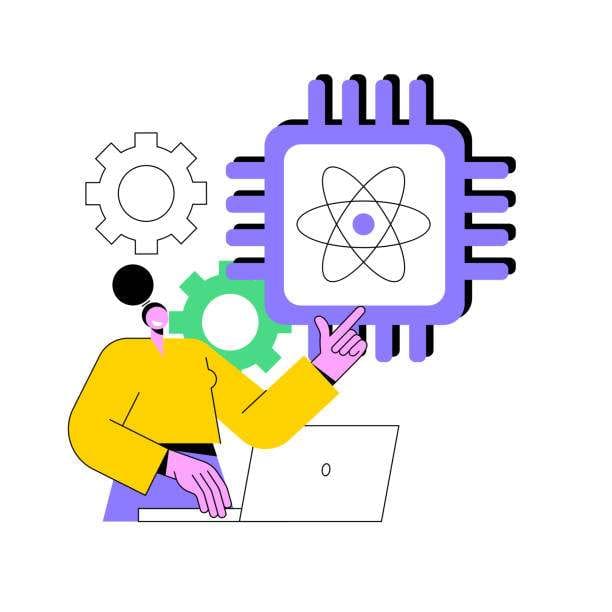
The word qubit is derived from quantum computing and it refers to a single quantum bit. Quantum computing uses a small amount of matter—such as a single atom or molecule—to store information. Because the storage of information is based on quantum physics, rather than classical computing, scientists say the technology could perform certain calculations much faster than traditional computers and even solve problems such as factoring large numbers and cracking passwords much faster than current computers.
While the qubit is used to represent a quantum bit, its true meaning lies in the fact that it can exist as both a zero (0) and a one (1). These are the values that computers process. A bit can exist in the 0, 1, or a superposition of the two states. When something is in a superposition, it’s neither zero nor one, but rather both at the same time. As an example, if you spin a coin while holding it up in front of you, the state of the coin exists in the superposition state.
The History of Quantum Computing?
The history of quantum computing is one of the more interesting ones because it started out as a theoretical concept. The basic idea behind quantum computers is that they don’t follow normal rules of cause and effect. According to the laws of quantum mechanics, particles have both a wave and a particle nature.
Particles act like waves at the subatomic level, meaning that quantum information is encoded in probabilities and the state of a particle is represented by a wave of probabilities. The wave function can represent more than one possible outcome at a given moment. And because these probabilities are constantly changing, the behavior of quantum objects can change over time, or at least it can appear to be changing.
Quantum computing was introduced in the year 1925, and in 1927, the first quantum computer was built. Many researchers have been trying to build a better quantum computer. However, it took several decades for the first quantum computer to be made.
While the concept of quantum computing has existed for nearly half a century, it wasn’t until the 1990s that the technology reached the level where it could become practical. A breakthrough occurred in 1994 when a team of researchers from IBM, Bell Labs, and the University of New Mexico developed a five-qubit quantum computer using superconducting magnetic flux qubits.
The qubits were manufactured by building a special kind of Josephson junction into a superconductor. The team of researchers demonstrated the first quantum algorithm, which performed better than classical computers could, proving that the technology was feasible.
How Does Quantum Computation Work?
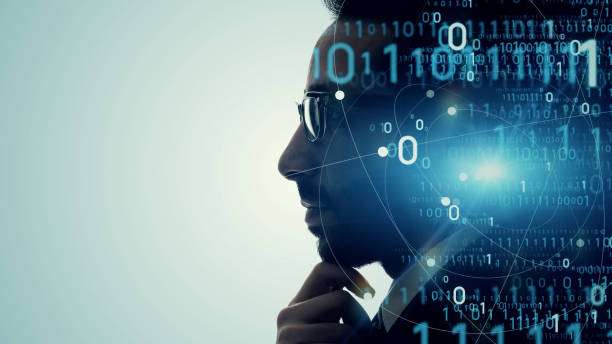
Quantum mechanics are the fundamental laws governing the behavior of all objects that are larger than atoms. They provide a framework for understanding phenomena like the ability to see, smell, touch, and hear. At the heart of quantum mechanics is the concept of superposition. The double slashes indicate that the electron can be in both states simultaneously.
Basic Principles of Quantum Computing

Quantum computing uses the principles of quantum mechanics to encode information in such a way that it can be processed at speeds beyond what traditional computers can handle. It is a new technology with enormous potential, but one that also poses challenges to the information systems that rely on it. While there are significant obstacles to the widespread adoption of quantum computing, some experts believe that we will see some breakthroughs in the next couple of decades.
Following are the Quantum computing principles, on which it does its work.
Superposition means that the state of a quantum system can exist in two states at once.
Entanglement is also called Quantum Teleportation. It means that quantum systems can share properties regardless of distance.
Quantum Parallelism: A quantum computer harnesses something called quantum parallelism. The idea behind quantum parallelism is very simple. A quantum computer uses superposition and entanglement to simultaneously operate on many “numbers” of bits (quantum bits, or qubits) to perform calculations that would normally require an exponential number of classical bits.
For example, imagine you have two friends, Jack and Jill, and they both want to play a game. If they play it simultaneously, they each only have to use a fraction of the amount of time and effort required to play the game individually.
It’s a bit more complicated than that. For example, when you have two friends, if they want to play a game, each friend must tell their partner exactly what their moves are. When one friend tells his partner what he is going to do, the partner can guess what the other player will do, and the partner can make the same guesses and compare them to what happened. If they don’t match, the partners can change their strategies and try again. If they don’t match the first time, they can keep repeating this process until they have the best possible strategy.
That’s what it takes to do calculations using a computer. A quantum computer does calculations in a completely different way, and it uses the concepts of superposition and entanglement to do it.
What are Quantum Algorithms?
Quantum algorithms are an entirely new form of computing. A quantum algorithm runs on qubits, which are bits of data that can exist in multiple states at once. While classical computers only store information in either a 0 or 1, a quantum computer can store information as both a 0 and a 1 at the same time. Quantum algorithms rely on principles of quantum physics that allow computers to process information in ways that make solving problems impossible using conventional computers.
Quantum algorithms are based on quantum mechanics, which is the branch of physics that deals with the properties of the smallest particles and atoms. Quantum mechanics is a field of physics that was developed in the early 1900s and continues to evolve today. It has been proved that quantum computers can perform certain tasks more efficiently than classical computers.
They can also perform some tasks that are impossible to accomplish using classical computers. The scientists who develop quantum algorithms are usually working with a team of other scientists to test the algorithms and find new methods of using quantum computers to accomplish specific tasks.
Applications of Quantum Computing
Quantum computing has many applications in many different areas of science. It has applications in many areas such as physics, chemistry, biology, and so on. It is a new branch of science that deals with the study of the behavior of quantum systems. Some of the areas that use quantum computing include quantum simulation, quantum algorithms, cryptography, artificial intelligence, and so on.
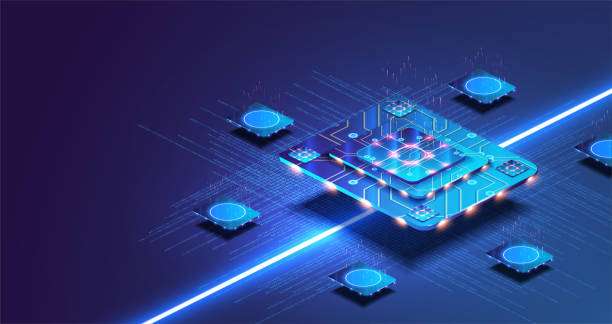
So far, quantum computers have only been used for specific purposes. However, if scientists continue to make progress in this field, it will be possible to use the devices as a tool for everyday computing tasks. These tasks include creating search engines, finding solutions to hard math problems, making predictions about future events, and creating better encryption methods.
Quantum Computing Potential and Benefits
The quantum computing revolution is happening right now. We are just entering a new era of computing. The next generation of computing is not the next generation of hardware, it’s the next generation of algorithms and methods of computation. A quantum computer uses quantum mechanical principles to solve problems. In contrast to a classical computer, the state of a quantum system is inherently probabilistic. That means a quantum computer can handle exponentially more computations than a traditional computer.
Quantum Computing Roadblocks
For quantum computing to become a reality, there are two major roadblocks that need to be overcome: scalability and coherence. Scalability is the ability of a quantum computer to perform all of the calculations needed to run modern-day applications. Coherence is the ability of qubits to keep up with the rapidly increasing speed of calculations and remain in the same state. There are several techniques that have been developed to solve these problems, but it is unlikely that any of these solutions will be ready for practical application within the next 5 years.
Quantum Computing Challenges
There are lots of things about quantum computing that may be challenging. Like to figure out if quantum computers are really as revolutionary as they claim to be. The technology is still very young, and the field has made significant progress over the last several years.
Quantum computers will be able to perform certain tasks exponentially faster than any computer on earth. They could potentially help in the discovery of new pharmaceuticals, make it possible to crack previously unbreakable encryption and provide answers to some of the biggest mysteries in science.
But because of how the quantum world works, they’re very difficult to build. One of the challenges is creating a quantum computer that is small enough to fit into a laptop or smartphone, but powerful enough to perform complex tasks.
Quantum Computing in Future
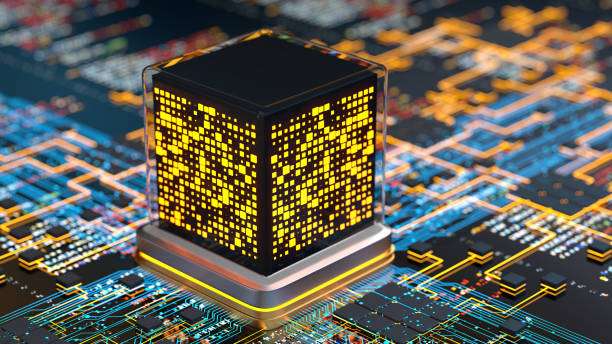
The world of quantum computers is fast-moving ahead. This field is not only emerging, but it is also growing exponentially. The potential applications of quantum computing are vast, ranging from quantum simulations of the physical world to solving problems in machine learning. There is no doubt that quantum computing is here to stay.

